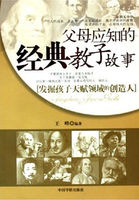I hardly dare repeat what the King said to me on his death-bed. All those who were usually in his cabinet were present, with the exception of the Princess, his daughter, the Princesse de Conti, and Madame de Vendome, who, alone, did not see the King. The whole of the Royal Family was assembled. He recommended his legitimated daughters to live together in concord, and I was the innocent cause of his saying something disagreeable to them. When the King said, "I recommend you all to be united," I thought he alluded to me and my son's daughter; and I said, "Yes, Monsieur, you shall be obeyed." He turned towards me, and said in a stern voice, "Madame, you thought I spoke of you. No, no; you are a sensible person, and I know you; it is to the Princesses, who are not so, that I speak:
Louis XIV. proved at his death that he was really a great man, for it would be impossible to die with more courage than he displayed. For eight days he had incessantly the approach of death before his eyes without betraying fear or apprehension; he arranged everything as if he had only been going to make a journey.
Eight or ten days before his death a disease had appeared in his leg; a gangrene ensued, and it was this which caused his death. But for three months preceding he had been afflicted with a slow fever, which had reduced him so much that he looked like a lath. That old rogue, Fagon, had brought him to this condition, by administering purgatives and sudorifics of the most violent kind. At the instigation of Pere Letellier, he had been tormented to death by the cursed constitution, --[The affair of the Bull Unigenitus]-- and had not been allowed to rest day or night. Fagon was a wicked old scoundrel, much more attached to Maintenon than to the King. When I perceived how much it was sought to exault the Duc du Maine, and that the old woman cared so little for the King's death, I could not help entertaining unfavourable notions of this old rascal.
It cannot be denied that Louis XIV. was the finest man in his kingdom.
No person had a better appearance than he. His figure was agreeable, his legs well made, his feet small, his voice pleasant; he was lusty in proportion; and, in short, no fault could be found with his person.
Some folks thought he was too corpulent for his height, and that Monsieur was too stout; so that it was said, by way of a joke at Court, that there had been a mistake, and that one brother had received what had been intended for the other. The King was in the habit of keeping his mouth open in an awkward way.
An English gentleman, Mr. Hammer, found him an expert fencer.
He preserved his good looks up to his death, although some of my ladies, who saw him afterwards, told me that he could scarcely be recognized.
Before his death, his stature had been diminished by a head, and he perceived this himself.
His pronunciation was very distinct, but all his children, from the Dauphin to the Comte de Toulouse, lisped. They used to say, Pahi, instead of Paris.
In general, the King would have no persons at his table but members of the Royal Family. As for the Princesses of the blood, there were so many of them that the ordinary table would not have held them; and, indeed, when we were all there, it was quite full.
The King used to sit in the middle, and had the Dauphin and the Duke of Burgundy at his right, and the Dauphine and the Duchesse de Berri on his left; on one of the sides Monsieur and I sat; and on the other, my son and his wife; the other parts of the table were reserved for the noblemen in waiting, who did not take their places behind the King, but opposite to him. When the Princesses of the blood or any other ladies were received at the King's table, we were waited on, not by noblemen, but by other officers of the King's household, who stood behind like pages.
The King upon such occasions was waited on by his chief Maitre d'Hotel.
The pages never waited at the King's table, but on journeys; and then upon no person but the King. The Royal Family had persons to attend them who were not noble. Formerly all the King's officers, such as the butler, the cupbearer, etc., etc., were persons of rank; but afterwards, the nobility becoming poor could not afford to buy the high offices; and they fell, of necessity, into the hands of more wealthy citizens who could pay for them.
The King, the late Monsieur, the Dauphin, and the Duc de Berri were great eaters. I have often seen the King eat four platefuls of different soups, a whole pheasant, a partridge, a plateful of salad, mutton hashed with garlic, two good-sized slices of ham, a dish of pastry, and afterwards fruit and sweetmeats. The King and Monsieur were very fond of hard eggs.
Louis XIV. understood perfectly the art of satisfying people even while he reproved their requests. His manners were most affable, and he spoke with so much politeness as to win all hearts.















